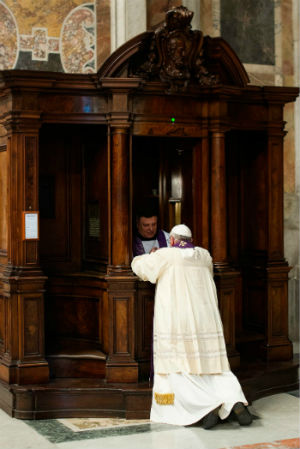Pope Francis, the 266th Pope of the Roman Catholic Church, has been a pivotal figure in modern ecclesiastical history. Known for his humility and emphasis on mercy, he has sought to bridge gaps within the Church and beyond. His leadership style emphasizes dialogue and reconciliation, making him an influential leader in addressing schisms and divisions within Catholicism.
The Society of St. Pius X (SSPX), founded by Archbishop Marcel Lefebvre in 1970, represents a traditionalist movement within the Catholic Church. The SSPX has often found itself at odds with the Vatican over issues such as liturgical practices and theological interpretations. However, recent developments under Pope Francis have sparked discussions about potential reconciliation, marking significant steps towards unity within the Church.
Pope Francis's approach to the SSPX reflects his broader vision of inclusivity and healing within the Catholic Church. In a letter addressed to Archbishop Rino Fisichella, who oversees the Holy Year of Mercy, Pope Francis confirmed that confessions heard by SSPX priests are valid and licit. This acknowledgment underscores the Pope's commitment to extending mercy and understanding to all members of the Church, including those affiliated with the SSPX.
Dialogue and Understanding: Pope Francis Meets with SSPX Leadership
A notable meeting took place between Pope Francis and Bishop Bernard Fellay, the superior general of the SSPX, at St. Peter's Basilica. Both the Vatican and the SSPX confirmed this encounter, highlighting a willingness on both sides to engage in constructive dialogue. Such meetings represent crucial steps toward resolving longstanding tensions and fostering mutual respect.
This interaction signifies more than just a formal meeting; it symbolizes an opportunity for both parties to explore common ground and address doctrinal differences. By engaging directly with the leadership of the SSPX, Pope Francis demonstrates his dedication to mending relationships and promoting unity within the Church.
Through these dialogues, the Catholic Church aims to clarify misunderstandings and work towards a resolution that respects the traditions upheld by the SSPX while maintaining alignment with broader Church teachings. This process requires patience and openness from all involved, reflecting the values of compassion and empathy advocated by Pope Francis.
Extending Mercy: Faculties Granted to SSPX Priests
Pope Francis extended the faculties granted to SSPX priests to hear confessions beyond the Year of Mercy. Originally announced in September 2015, this decision ensures that individuals seeking spiritual guidance from SSPX priests can do so without concern regarding the validity of their sacraments. This move exemplifies the Pope's focus on accessibility and inclusivity within the Church.
By affirming the legitimacy of SSPX priests' ability to administer sacraments, Pope Francis addresses concerns about canonical status and reinforces the importance of pastoral care. It also acknowledges the role SSPX priests play in serving communities that value traditional liturgical practices, ensuring they remain integrated into the larger Catholic community.
This extension serves as a practical demonstration of mercy and reconciliation, encouraging greater cooperation between the SSPX and the Vatican. It reflects Pope Francis's belief in the transformative power of forgiveness and unity, inviting all Catholics to embrace a spirit of collaboration and mutual support.
Canonical Status and Future Prospects for the SSPX
The canonical situation of the SSPX remains complex, as the society contends that it was canonically established and has not been suppressed. Despite ongoing debates, efforts continue to resolve outstanding issues related to its legal standing within the Church. These discussions involve intricate theological and canonical considerations, requiring careful examination and discernment.
As the Church moves forward, there is hope that increased dialogue will lead to a resolution that honors both the SSPX's commitment to tradition and the universal principles guiding the Catholic Church. This process involves addressing questions surrounding communion with local bishops and the papacy, ensuring alignment with core doctrines while respecting unique perspectives.
Ultimately, the future relationship between the SSPX and the wider Catholic Church hinges on continued engagement and compromise. By fostering an environment of trust and understanding, Pope Francis seeks to create a path toward lasting reconciliation, enabling all members of the Church to unite in faith and purpose.

